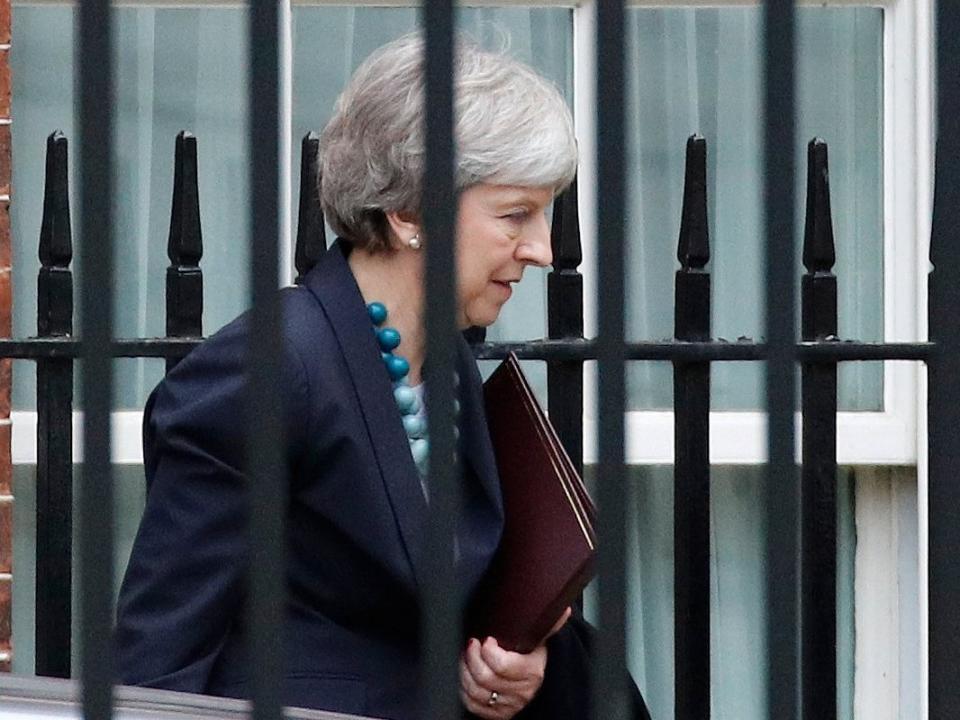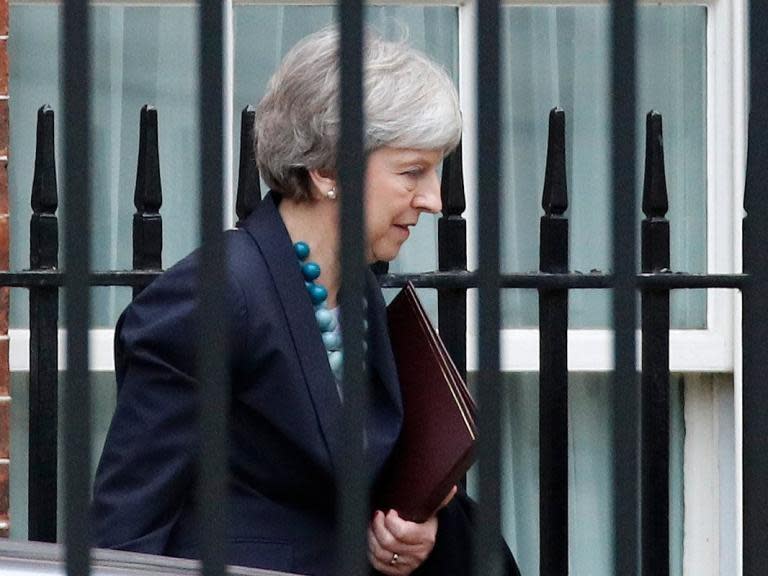Brexit backstop: Government has failed to produce any economic analysis of Irish border plan, Treasury Committee reveals
The government has failed to produce any economic analysis of a crucial plank of Theresa May's Brexit deal, an influential committee of MPs has warned.
Ministers have not assessed the impact of the controversial customs backstop, which the UK would enter into if it cannot agree a trade deal with the EU, the Commons Treasury Committee said.
The lack of evidence makes it "difficult" for MPs to consider the necessary facts before voting on Ms May's proposed deal, the committee warned.
The report, agreed unanimously by the cross-party group of MPs, also condemned the government's failure to assess the short-term impact of Brexit.
And it said ministers' plan for the UK's future relationship with the EU was so unlikely to happen that analysis of it should be ignored by MPs.
The backstop is the most contentious part of the government's draft withdrawal agreement and has been widely criticised by MPs from across the political spectrum.
The proposal would see the UK remain in a customs union with the EU indefinitely, while new checks would be needed on goods travelling between Northern Ireland and the rest of the country.
Ms May was forced to delay the crunch Commons vote on her deal after more than 100 Tory MPs vowed to vote against it, mostly because of their opposition to the backstop.
Ministers have insisted that the plan will not be needed because a deal on the future relationship will be agreed, but the Treasury Committee said it was "feasible" that the UK would need to enter the backstop protocol.
The committee said: "Trade negotiations can take four years to agree, and previous EU negotiations, have taken longer; the EU-Canada Comprehensive Economic and Trade Agreement (CETA) took over eight years.
"It is feasible, therefore, that the UK could enter the backstop. Despite it being neither the UK’s nor the EU’s preferred position, the government should have modelled the backstop."
Government officials told the committee they had not modelled the impact of the backstop because "it is not the preferred policy position and it is not a long-term scenario".
The economic analysis, published earlier this month after MPs voted to force its release, mapped out five possible Brexit scenarios, ranging from a no-deal outcome to remaining in the EU.
One of the possibilities was based on the government's plan for the future relationship, which would see the UK abide by EU regulations on goods. Key elements of the proposal have been repeatedly dismissed by EU leaders.
The Treasury Committee said the plan was so unlikely to become a reality that the economic assessment of it should be ignored by MPs when they vote on the proposed deal.
The analysis of the so-called Chequers plan is based on “the most optimistic and generous reading” of the draft agreement with the EU and “does not represent the central or most likely outcome”, it said.
As such, the economic analysis “cannot be used to inform Parliament’s meaningful vote on the withdrawal agreement”, the MPs said.
The committee also criticised the government’s failure to carry out an assessment of the short-term risks of Brexit, including on public finances and potential job losses.
It said: “The government has only provided long-term analysis, which does not show how the economy will transition to a new trading relationship, or the path taken by inflation and unemployment.
“Although the Bank [of England] provided the committee with short-term analysis, the committee is disappointed that the Treasury did not provide all the evidence that the committee requested as there is no government short-term analysis of the deal upon which Parliament will vote."
Former cabinet minister Nicky Morgan, who chairs the Treasury Committee, said the government had made it "difficult" to ensure MPs are fully informed when voting on the proposed deal.
She said: “The committee is disappointed that the government has modelled its white paper, which represents the most optimistic reading of the political declaration, rather than a more realistic scenario.
“The committee is also disappointed that the Treasury has not analysed the backstop and fails to include short-term analysis of any of the scenarios, including impacts on public finances and on regional and sectoral job losses or gains.
“Despite this, the committee hopes that all MPs will read our report to draw from the range of scenarios modelled in order to assess the economic impact of the withdrawal agreement and political ceclaration.”

 Yahoo News
Yahoo News 

